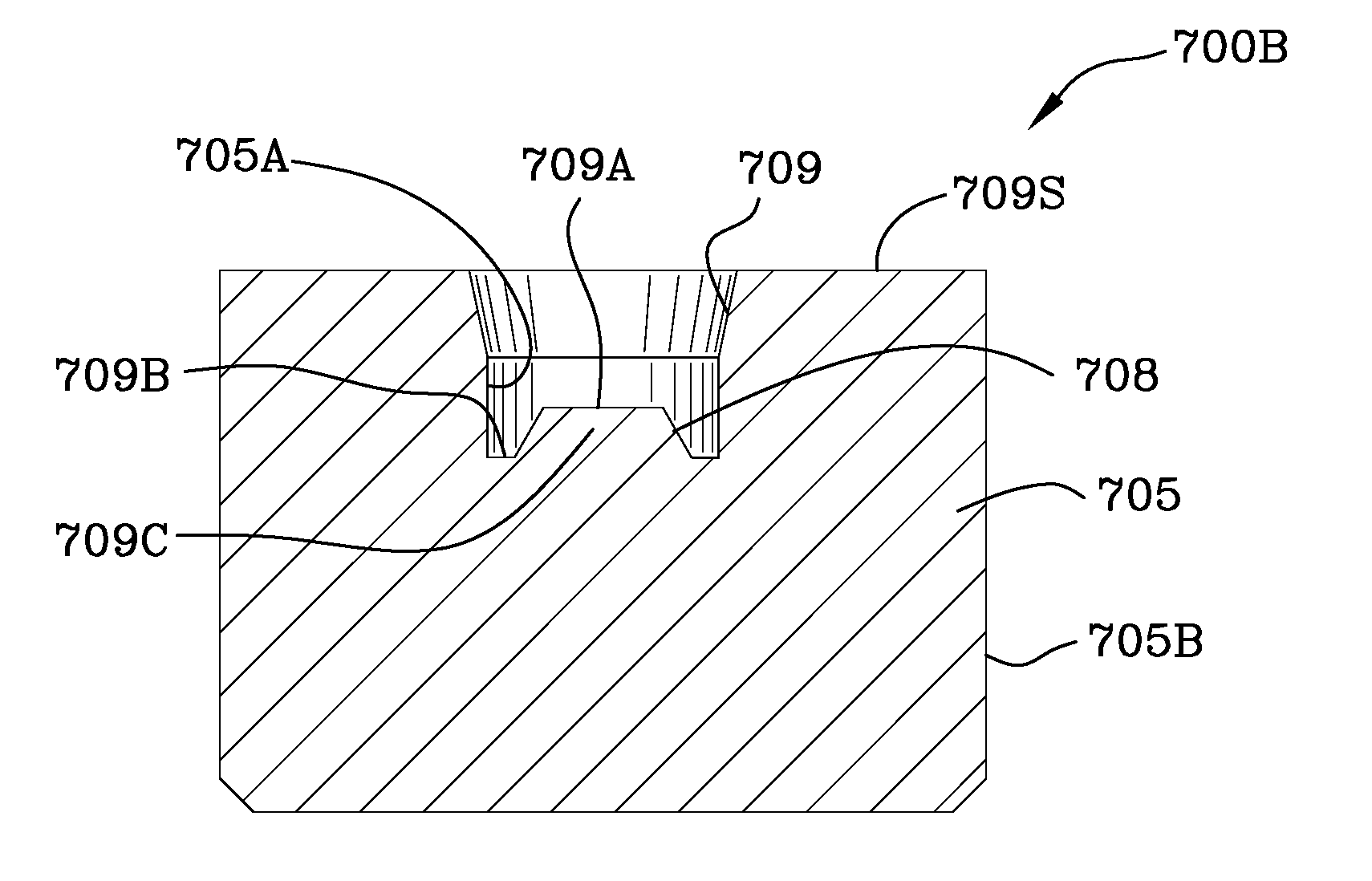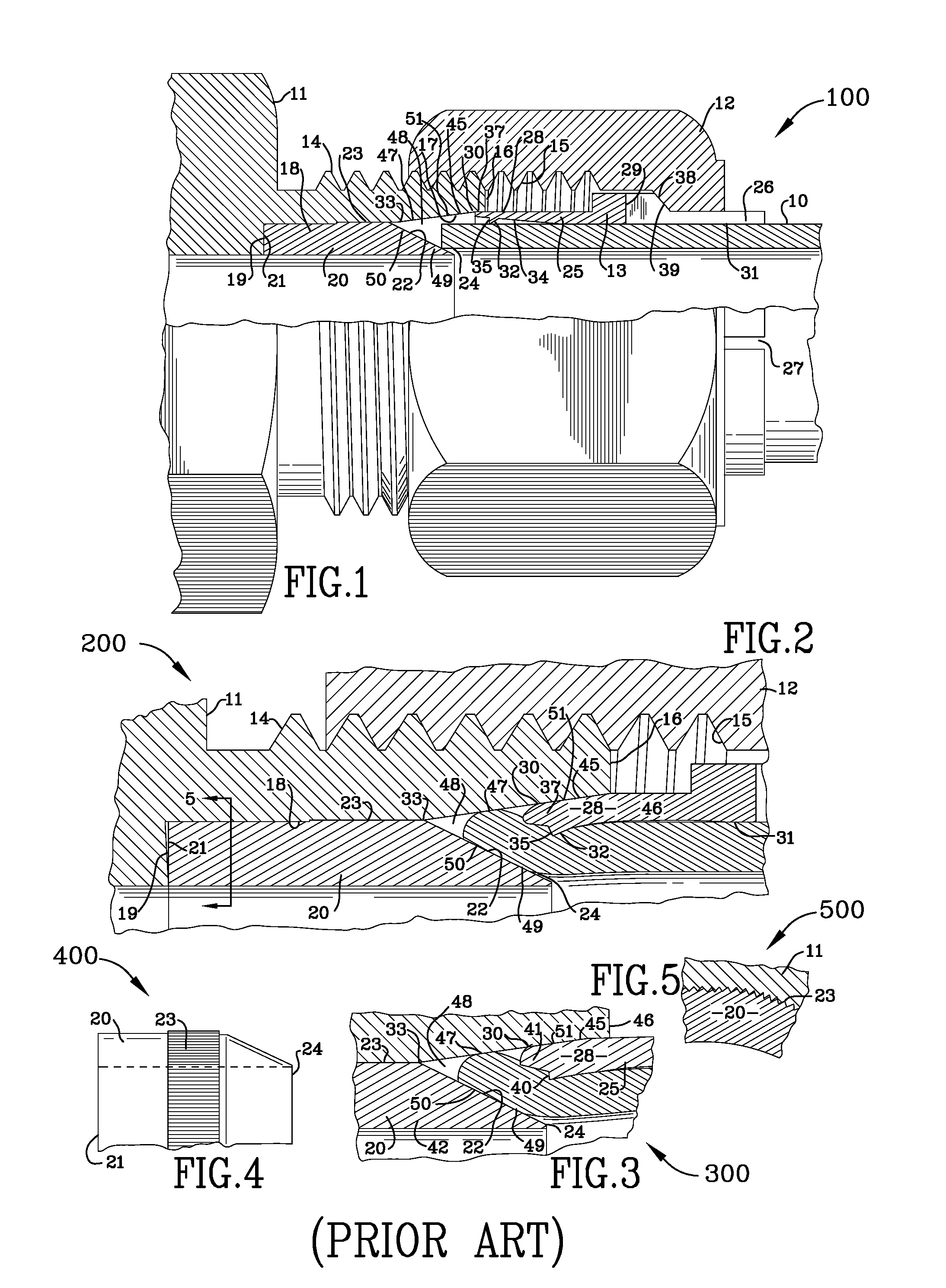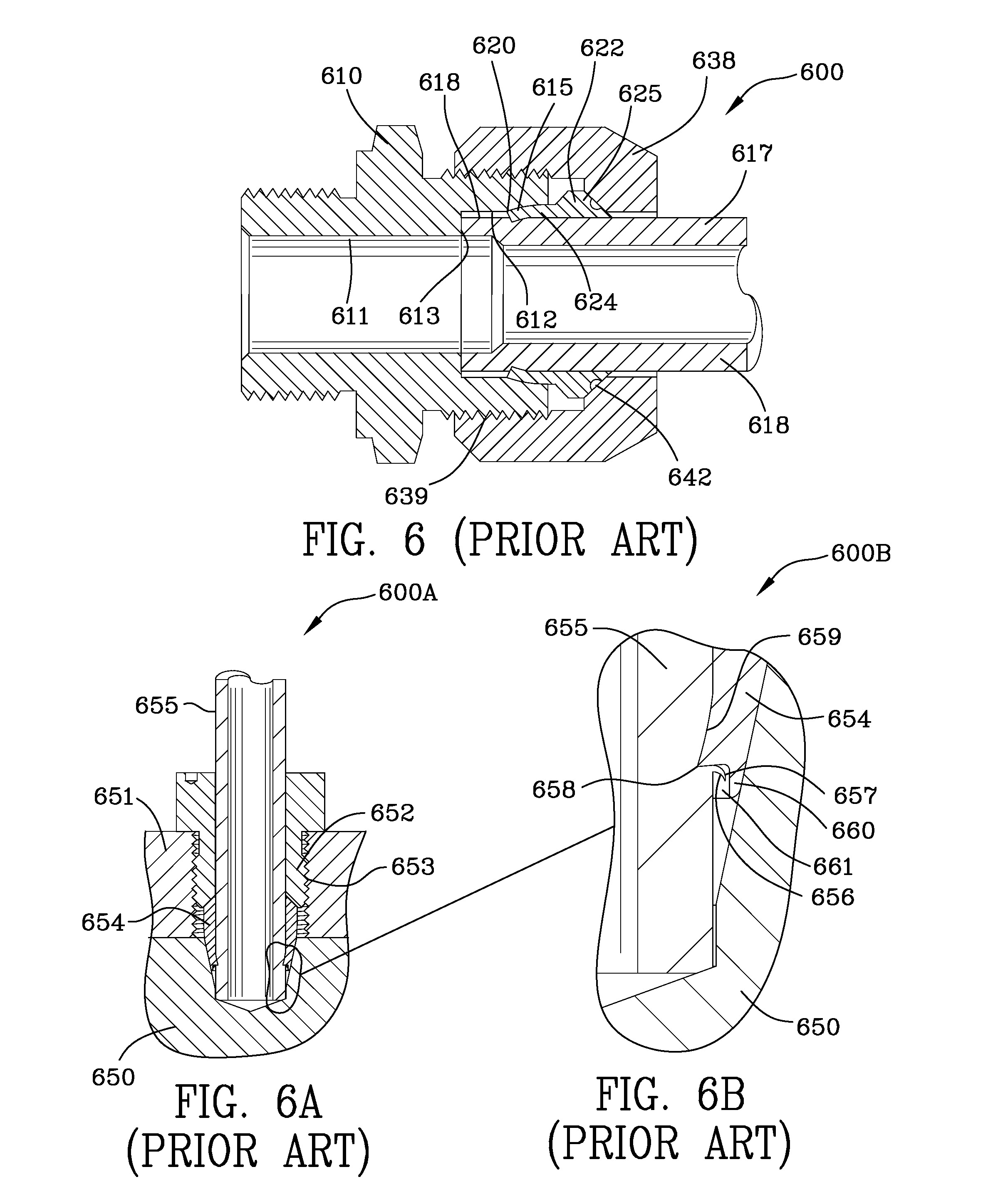Tube compression fitting and flared fitting used with connection body and method of making same
a compression fitting and connection body technology, applied in the direction of pipe joints, pipes/joints/fittings, mechanical devices, etc., can solve the problems of difficulty in explaining the reason for the problem, the difficulty of matching tolerances, and the complexity of matching tolerances, so as to increase the surface hardness of the sleeve, the effect of sufficient lubricity
- Summary
- Abstract
- Description
- Claims
- Application Information
AI Technical Summary
Benefits of technology
Problems solved by technology
Method used
Image
Examples
Embodiment Construction
[0069]FIG. 7 is an exploded view 700 of the apparatus for making the fitting illustrating: thick walled tubing 701, interior of the tubing 701A, exterior of the tubing 701D, width of the tubing 701B and the end of tubing 701C. Gland 702 includes exterior threads on gland 702A. Gland 702 includes an inner cylindrically shaped passageway 702B through which thick walled tubing 701 passes. Cap 703 includes exterior threads 703A which mate with interior threads 706A in the aluminum housing 706. Cap 703 is rotated with a rod (not shown) inserted into cap 703. Cap 703 further includes an annular recess into which the die 705 enters. Sleeve 704 includes an inner contoured surface 704A which is generally cylindrically shaped with a relief which facilitates bending and deforming the sleeve with pressure and force applied by the gland 702 as described hereinbelow. Die 705 includes a contoured interior 705A which includes a sleeve engaging tapered surface 709 which interengages the exterior 704...
PUM
| Property | Measurement | Unit |
|---|---|---|
| angle | aaaaa | aaaaa |
| depth | aaaaa | aaaaa |
| length | aaaaa | aaaaa |
Abstract
Description
Claims
Application Information
 Login to View More
Login to View More - R&D
- Intellectual Property
- Life Sciences
- Materials
- Tech Scout
- Unparalleled Data Quality
- Higher Quality Content
- 60% Fewer Hallucinations
Browse by: Latest US Patents, China's latest patents, Technical Efficacy Thesaurus, Application Domain, Technology Topic, Popular Technical Reports.
© 2025 PatSnap. All rights reserved.Legal|Privacy policy|Modern Slavery Act Transparency Statement|Sitemap|About US| Contact US: help@patsnap.com



